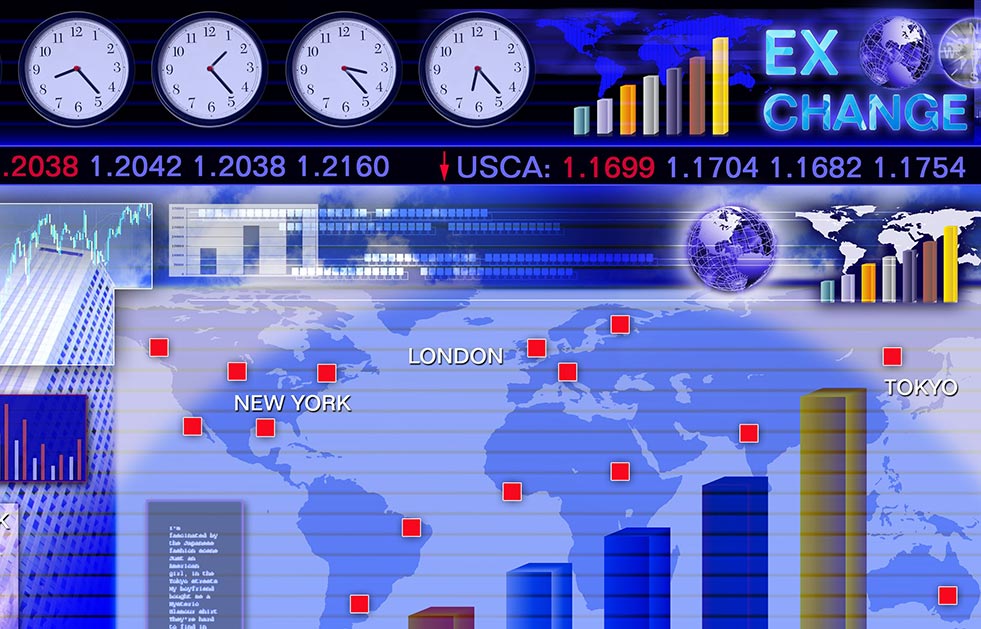 The foreign exchange market is a global decentralized market for currencies trading. In terms of volume of trading, it is by far the largest market in the world. The main participants in this market are the larger international banks. Financial centers around the world function as anchors of trading between a wide range of multiple types of buyers and sellers around the clock, with the exception of weekends.
The foreign exchange market is a global decentralized market for currencies trading. In terms of volume of trading, it is by far the largest market in the world. The main participants in this market are the larger international banks. Financial centers around the world function as anchors of trading between a wide range of multiple types of buyers and sellers around the clock, with the exception of weekends.
The foreign exchange market assists international trade and investments by enabling currency conversion. For example, it permits a business in the United States to import goods from European Union member states, especially Eurozone members, and pay Euros, even though its income is in United States dollars. It also supports direct speculation and evaluation relative to the value of currencies, and the carry trade, speculation based on the interest rate differential between two currencies.
Forex trading hours are the hours during which forex market participants are able to buy, sell, exchange and speculate on currencies. The forex market is open 24 hours a day, five days a week. International currency markets are made up of banks, commercial companies, central banks, investment management firms, hedge funds, and retail forex brokers and investors around the world. Because this market operates in multiple time zones, it can be accessed at almost any time.
Traditionally, the market is separated into three sessions during which activity peaks: the Asian, European and North American sessions. More casually these three periods are also referred to as the Tokyo, London and New York sessions. These names are used interchangeably, as the three cities represent the major financial centers for each of the regions. The markets are most active when these three powerhouses are conducting business as most banks and corporations make their day-to-day transactions and there is a greater concentration of speculators online.
Forex trading hours are based on when trading is open in each participating country: New York 8am to 5pm EST, Tokyo 7pm to 4am EST, Sydney 5pm to 2am EST, London 3am to 12 noon EST. When trading currencies, a market participant must first determine whether high or low volatility will work best with their personality and trading style. If more substantial price action is desired, trading the session overlaps or typical economic release times may be the preferable option.







